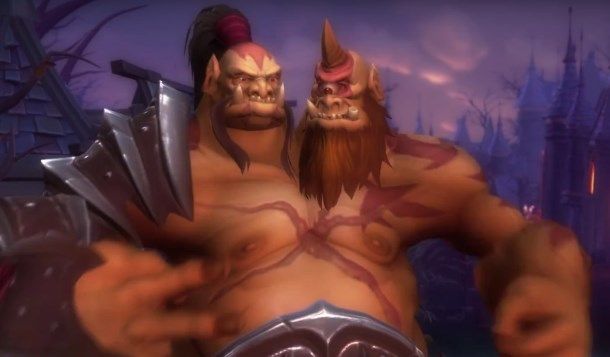Co-DMing, because two heads are always better than one

When running groups, it's generally assumed that you will run it by yourself, which puts you into a position of complete control, but also a lot of pressure to perform. While doing regular social skills groups, I found that having a co-DM was a great way to alleviate this stress, while also increasing the diversity of experiences the players encounter.
There's two ways to do co-DMing- rotating Dms, or having a DM partner. A rotating DM scenario is best when all the players are at the same level, and the strength here is that DM burnout is rarely a problem, but the one caveat I've experienced is ensuring that everyone is on the same page, which a strong session 0 can help with- I had a co-DMed game that quickly fell apart after an individual took over the campaign and spent an entire session torturing the players because he wanted to be edgy. That being said, I haven't done much rotating DM games lately, so I won't spend too much time talking about it.
Having a DM partner is something I completely advocate, especially if you are running some type of social skills group. While the one person Dms, the other person observes the group, perhaps jumps in as a NPC, or monitors behaviors on the whiteboard- This is particularly helpful for larger groups, or groups where there's a lot of disruptive behaviors. With one of my groups, we would give experience bonuses and penalties based on behaviors to the entire group, which encouraged self policing and good behavior- This also meant that the kids could step up their game when they wanted to level, and often did.
That being said, co-DMing has it's own challenges, so the following are important things to keep in mind if you enter a DM-partnership.
-Communication. Communicate regularly about what your plans are, what the plot boundaries are, and where you'd like to take the group over the next few sessions. In turn, they'll tell you their plans and what they'd like to do- They might ask you to run a travel session while they build the temple encounter, or may need you to run a few sessions consecutively as they will be absent.
-Create a shared space for notes. A wiki serves this purpose well.
-Be open about where you are, mentally. If you want a break next week, ask for it.
-Have material planned in case the co-DM can't run game. This is a good practice anyway, in case the players go off the rails.
-Take care of your co-DM. I made a practice to always have an extra foodbar and diet coke if they needed caffeine or calories.
-Understand their playstyle. One co-DM I had tended towards a lot more improvisational gaming, whereas I focus on more narrative, planned sessions. We'd often set each other up for something fun.
-Create summaries of the sessions if the co-DM can't be at the session. It helps to do this right after the session, while it's still fresh in your head. If they miss a session, then get a plot point wrong because you forgot to tell them about it, it can be very bad and result in a lot of frustration.
-Expect the unexpected. Usually they'll work within your boundaries, but given the nature of the game and its players, there's always those times where things go absolutely in an unexpected direction, so be ready for that.
A lot of these come down to healthy communication, and that's really what's key. Make sure you have good chemistry, stay in touch, and work off each other's strengths to build a much more robust campaign.
I'll close with one of my favorite stories from when I was co-DMing an AY social skills group game with Dr Raffael Boccomazzo. Dr B. is a very improvisational DM, and while he is very talented at coming up with great characters and cool stories, he tends to enjoy adding a bit of chaos to the world, and what better way than a deck of many things. He gave the kids access to it one session, and one of the kids had pulled a wish. That session had been forgotten, and back then I was very much into planning everything, much like writing a novel- we were wrapping up a quarter with the major antagonist being the dwarven mafia, and I had written a session that involved them getting ambushed, disarmed, and put into prison. I had then written something like 10 pages of material for the following quarter about how they would have to escape, and survive the dwarven mafia sending a slew of deadly assassins after them.
The session went as planned, with the kids taking the bait and following the dwarven mafia to an abandoned warehouse, but when they entered, 30 dwarves with heavy crossbows emerged, pointing them at the party. The kids debated whether or not they should try to fight or surrender, when one kid smugly raised his hand, “I'm pulling my wish. I wish the dwarf mafia was gone.”
I blue screened in my head, and the hysterical expression on Raffael's face is one I'll never forget, as he had seen the huge plot outline I had sent him the night before, and was witnessing it going up in flames as I sputtered and stammered that the dwarf mafia was gone, and they were in an empty warehouse. That being said, he ran the next session, and the party blamed a divine entity for the dwarf mafia vanishing, which led to a shadow cult of vecna taking over, which ended up being a much more interesting plot path.
So as one last tip, just expect the unexpected, and keep in good spirits as you get to have the wonderful experience of crafting a campaign with a friend, because as the old adage (which seems to be aimed at Ettins in particular) says, 'two heads are better than one.'
